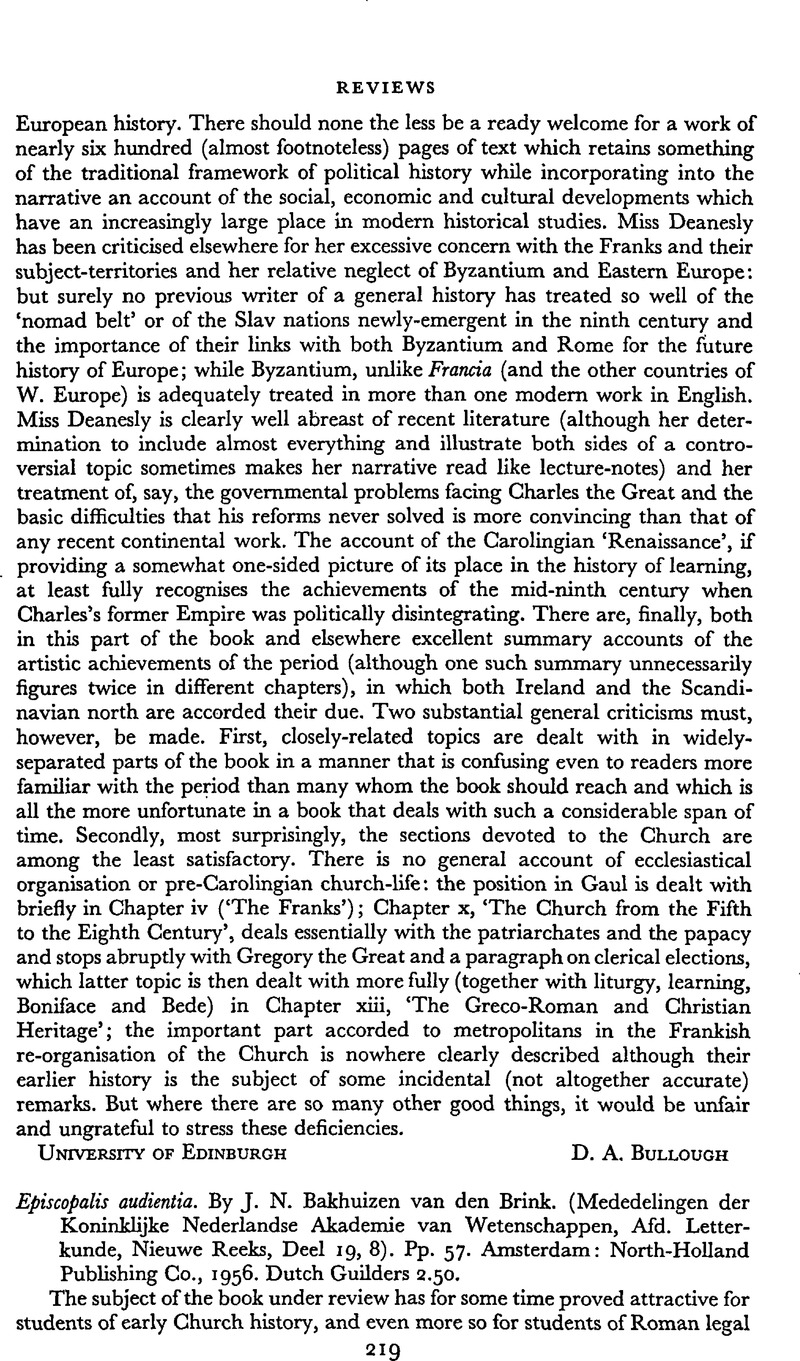No CrossRef data available.
Published online by Cambridge University Press: 25 March 2011

page 220 note 1 The fact that the bishops were by the state itself not tied to the rules of Roman law follows, I think, from the two Constantinian constitutions quoted, in which however—a point which is constantly being overlooked—the words praescriptionis vincula refers to the time limits set by the so-called procedure by litis denuntiatio.
page 220 note 2 Sources in Byz. Ztschr., xxx (1929–30), 661; Ztschr. Sav. Stift. Rom. Abt., lviii (1938). 200n 2Google Scholar; 373n. 3; ibid., lxxii (1955) 189;Biondi,Diritto Romano Cristiano, i. 454; Caspers, Der Güte- und Schiedsgedanke im kirchlichen Zivilgerichtsverfahren (1953), 21 ff. Add the still neglected relatio 21 (384) of Qu. Aur. Symmachus.
page 221 note 1 I have not yet heard of any critical voice regarding my hypothesis proposed in Real-Enz. Antike u. Christentum, art. audientia episcopate, that state recognition of episcopalism audientia arose in the field of legal procedure out of the parties' right of rejecting prejudiced judges (παρτησις).
page 221 note 2 [Translated from the German by Rev. Dr. A. Ehrhardt and approved by Professor Steinwenter—Ed.];